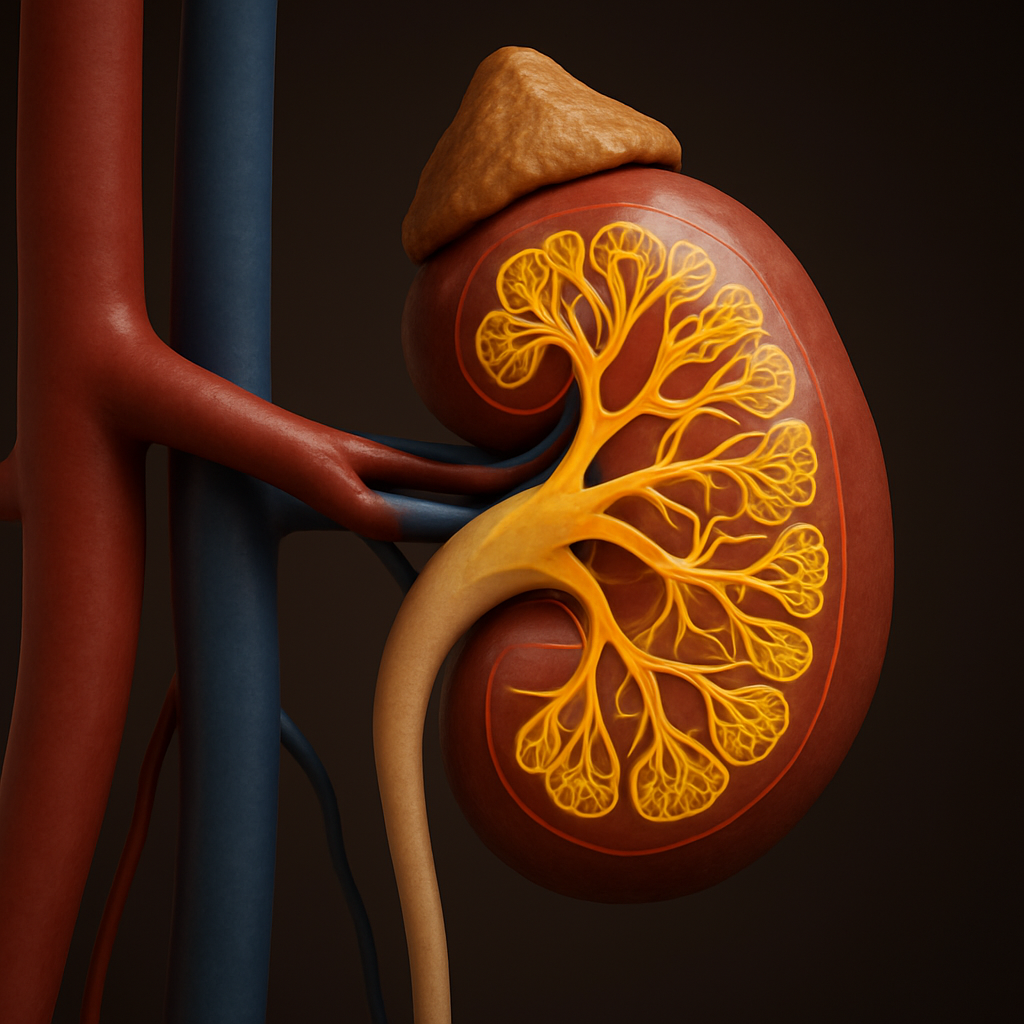When most people think of the kidneys, they picture two bean-shaped organs silently filtering waste from the blood and making urine. While that’s true, it’s just the tip of the iceberg. The kidneys are metabolic powerhouses that regulate multiple body systems far beyond filtration — playing roles in hormone production, blood pressure control, bone health, and even brain function.
Let’s dive into the deeper, lesser-known roles of these amazing organs.
1. Hormone Factory: Meet Erythropoietin (EPO)
One of the kidney’s secret superpowers is producing erythropoietin, a hormone that stimulates your bone marrow to make red blood cells.
If your kidneys are damaged (as in chronic kidney disease), EPO production falls — leading to anemia, fatigue, and weakness.
Many people with kidney issues don’t just suffer from fluid overload or waste retention — they’re chronically tired due to low red blood cell counts.
This is why dialysis patients often receive synthetic EPO injections.
2. Blood Pressure Control: The RAAS System
Your kidneys help control blood pressure through the Renin-Angiotensin-Aldosterone System (RAAS).
When blood flow to the kidneys drops, they release renin, a hormone that sets off a chain reaction to raise blood pressure and retain sodium and water.
This system is so powerful that many hypertension medications — like ACE inhibitors and ARBs — specifically target it.
Kidneys don’t just respond to blood pressure; they actively shape it.
3. Bone Health: Vitamin D Activation
Your kidneys activate vitamin D into its usable form — calcitriol. This active form is essential for calcium absorption and healthy bones.
Without proper kidney function:
- Vitamin D isn’t activated
- Calcium levels drop
- The bones become brittle, leading to renal osteodystrophy, a bone disease common in long-term kidney patients
In essence, your kidneys help keep your skeleton strong.
4. Acid-Base Balance: The pH Guardians
Every moment, your body produces acids through metabolism. The kidneys carefully manage the balance of bicarbonate (HCO₃⁻) and hydrogen ions (H⁺) to keep your blood’s pH within a tight range.
When kidneys fail, this balance falters, leading to metabolic acidosis — which causes confusion, weakness, and rapid breathing.
5. Toxin Detox & Electrolyte Mastery
Beyond filtering toxins like urea and creatinine, the kidneys maintain a delicate balance of key electrolytes:
- Potassium (vital for heart function)
- Sodium (controls fluid balance and nerve function)
- Calcium & phosphate (for bones, muscles, and more)
Even a slight imbalance can trigger dangerous arrhythmias, seizures, or muscle cramps.
6. Chronic Kidney Disease (CKD): A Silent Systemic Killer
Because kidneys impact so many body systems, CKD is never just a kidney issue:
- Increases risk of heart attacks and strokes
- Causes bone fractures
- Weakens the immune system
- Disrupts hormonal balance
- Contributes to cognitive decline
And worst of all? CKD is often silent until late stages.
Final Thought: Protect Your Powerhouses
Your kidneys are much more than waste filters — they’re vital regulators of almost every system in your body.
Treat them well by:
- Staying hydrated
- Managing blood sugar and blood pressure
- Avoiding excessive use of painkillers (NSAIDs)
- Getting regular checkups — especially if you have risk factors
Your Kidneys Deserve More Credit
So the next time you hear someone say the kidneys “just make pee,” you’ll know:
They’re chemical command centers, hormone hubs, and lifesaving regulators working 24/7 to keep you alive.

